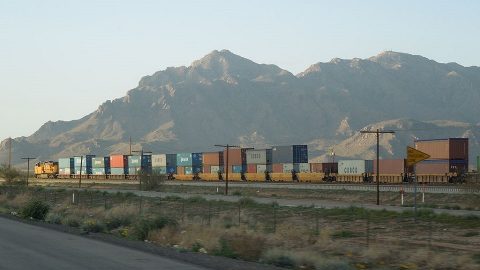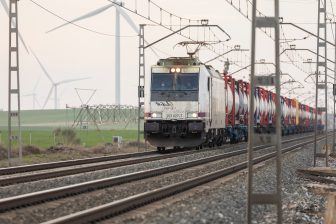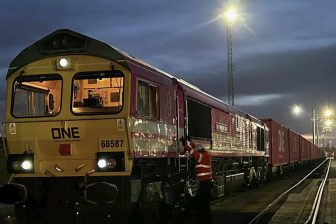
American rail industry calls for vote on US-Mexico-Canada Agreement
The Association of American Railroads (AAR) has sent a letter to Congress, urging it to approve the United-States-Mexico-Canada Agreement (USMCA). This trade agreement is specifically important to the rail freight sector as free trade include countless commodities and every region of the country. This agreement will assure market certainty, stimulate further investment and enhance the standard of living in all three countries.
“The freight railroads and our customers require certainty to continue making investments that will support and grow seamless commerce between our country and two of our largest trading partners. We strongly urge you to support this modernised trade agreement and approve the USMCA to harness the full potential of the North American trading relationship”, the American interest group uttered.
Trade value
The freight railroads supported efforts to modernise the North American Free Trade Agreement and believe that the USMCA brings this long-standing trading relationship into the 21st century. Specifically, the USMCA includes essential provisions related to e-commerce and digital trade, both of which help drive intermodal rail shipments — one of the key sectors of the rail business.
Commodities transported by rail include imports and exports of automotive products between factories in dozens of U.S. states, Canada and Mexico and nearly 43 billion US Dollars worth of agricultural goods. Based on conservative estimates, international trade accounts for at least 35 per cent of U.S. freight rail revenue (26.4 billion out of 75.1 billion US Dollars); 27 per cent of U.S. rail tonnage (511 million tonnes out of 1.88 billion); and 42 per cent of the carloads and intermodal units (13.4 million units out of 32.2 million), the ARR points out.
Rail jobs
“Simply put, robust international trade means good-paying jobs for American workers, and railroaders in particular who earn an average of $125,400 per year in total compensation. Approximately 50,000 of these rail jobs, worth more than $5.5 billion in annual wages and benefits, depend directly on international trade.
“This does not include other significant job-related impacts including employees at ports who handle rail shipments; jobs at firms that supply goods and services to railroads and others in support of trade-related rail movements; and impacts derived from expenditures of rail and port employees, and their suppliers”, ARR wrote in its letter.





